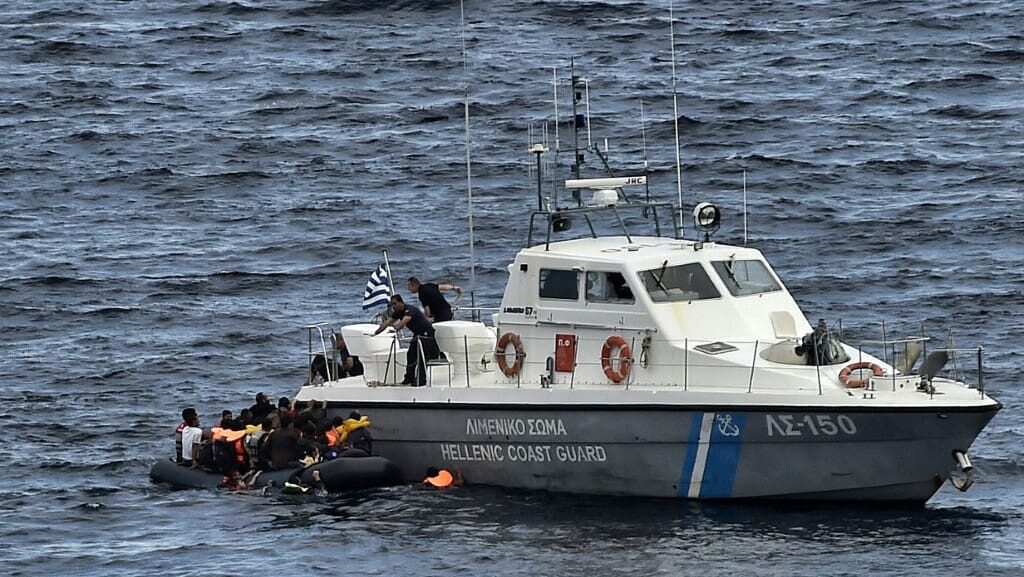
Hellenic Coast Guard intercept illegal migrants near the island of Lesbos
Photo: Aris Messinis / AFP
Frontex, the European Union’s border control agency, announced that it will reduce or cut its funding to Greece if the country fails to comply with its ‘recommendations’ to address alleged violations of the rule of law via ‘migrant pushbacks.’
The move comes in the footsteps of a ruling from the European Court of Human Rights (ECtHR), which established earlier this year that Athens’ “systemic pushbacks” have violated migrants’ fundamental human rights. The term ‘pushback’ refers to the detention of illegal migrants caught inside the country and their forcible return across borders, without granting them the ability to request asylum.
In the EU, Greece has the highest number of active cases of human rights violations against migrants. Pushbacks have allegedly taken place both at the country’s land border with Turkey—which has been closed by a border fence, massively helping the center-right Néa Dimokratía (EPP) win re-election in 2023—as well as on sea, where the Hellenic Coast Guard is accused of forcibly turning back migrant dinghies toward Turkey.
Frontex recently announced that it’s developing concrete recommendations to prevent such human rights violations from happening in the future—recommendations that Athens would be wise not to ignore.
According to Chris Borowski, a spokesman for the agency considers taking away “co-financed assets,” meaning a number of vessels operated by the Hellenic Coast Guard.
Frontex has said that [it] expects all these recommendations to be implemented. Otherwise, [they] would consider reducing or cutting funding for co-financed assets.
While this is yet another example of Brussels harassing a member state for protecting its borders from illegal migration, it’s worth noting that even if Frontex acts on these threats, it would only amount to a slap on the wrist compared to what national conservative governments, such as Hungary or the PiS-led Poland had to go through for the same or less.
The reason is simple: the Greek ruling party sits in the centrist EPP group at the top of the EU hierarchy, and Greek PM Kyriakos Mitsotakis has been one of von der Leyen’s oldest allies in the European Council.
To better illustrate Brussels’ hypocrisy, just consider the examples of Poland or Italy.
Poland’s current liberal government led by PM Donald Tusk (PiS/EPP)—another key ally of the EU elite—has been accused of the same pushbacks at its border with Belarus. Yet, instead of infringement procedures, Tusk was given semi-official EU permission to continue with the pushbacks, due to Russia’s ‘hybrid warfare’ being blamed for the migrant surge.
In Italy, on the other hand, Deputy PM Matteo Salvini (Lega/PfE) has been put on trial and was facing six years in prison for not letting illegal migrants disembark once—basically the same offense that Greece has been committing ‘systematically,’ according to the ECtHR. Yet, no politician was put on the stand in Athens, and the European Commission is not seeking to freeze billions of EU funds for rule-of-law violations either.
Mitsotakis seems to be completely aware of his privileged position: his government does not only deny the allegations—and therefore will be unlikely to implement any meaningful changes based on Frontex’s recommendations—but also keeps doubling down on the anti-migration rhetoric, just as its voters expect it to.
